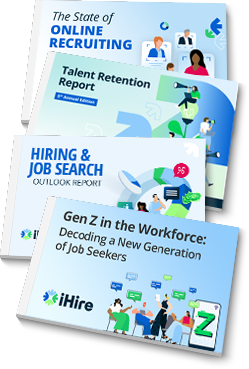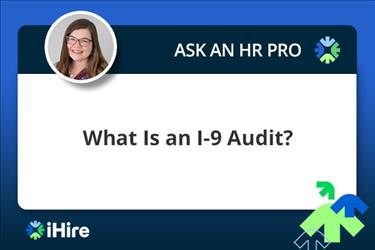- Employer Resources
- |
- Last Updated: August 19, 2025

The Ultimate Guide to Offering Healthcare Sign-On Bonuses
Healthcare employers are facing one of the most competitive talent markets in recent history. With nursing shortages reaching critical levels and specialized healthcare professionals in high demand, traditional recruitment strategies aren’t always enough. Enter the sign-on bonus – a powerful tool that can help you stand out from the crowd and secure the talent you desperately need.
But before committing the funds, let’s make sure the investment will be worth the reward. In this article, we’ll dive deep into the world of healthcare sign-on bonuses. We’ll explore what is a sign-on bonus, when they work (and when they don’t), and how to create a program that actually delivers results.
What Is a Sign-On Bonus?
Think of a sign-on bonus as a welcome gift with strings attached. It’s a lump sum payment offered to new employees as an incentive to join your organization, typically paid either immediately upon hire or within the first few months of employment. Unlike salary or benefits, a sign-on bonus is usually a one-time payment designed to sweeten the deal and make your company more attractive than your competitors.
In the medical field, these healthcare worker bonuses have become increasingly common as hospitals, clinics, and healthcare systems compete for skilled professionals. From registered nurses to respiratory therapists, pharmacy technicians to medical assistants, sign-on bonuses are being used across virtually every healthcare role.
The Healthcare Sign-On Bonus Landscape
Healthcare sign-on bonuses aren’t one-size-fits-all. They can range from a few hundred dollars for entry-level positions to tens of thousands for specialized roles or hard-to-fill positions. Here’s what you might typically see:
Unlicensed Positions: $500–$5,000
- Medical transcriber
- Unit administrator
- Outpatient scheduler
Licensed Professionals: $1,000–$20,000
- Pharmacy technicians
- Occupational therapists
- Speech-language pathologists
Registered Nurses: $5,000–$20,000
- Staff nurses
- Specialty unit nurses
- Travel nurse conversions
Physicians: $10,000–$50,000+
- Anesthesiologists
- Emergency medicine
- Hematology/oncology
There is a wide range of healthcare sign-on bonus rates depending on location, competition, and specialty.
Pros of Sign-On Bonuses in Healthcare
In the competitive realm of healthcare recruitment, sign-on bonuses have emerged as a significant strategy for attracting and securing talent. Below are some of the primary benefits of utilizing healthcare worker bonuses.
1. Immediate Competitive Advantage
In today’s market, candidates often have multiple offers on the table. A well-structured healthcare worker bonus can be the deciding factor that tips the scales in your favor. It’s like having a secret weapon in your recruitment arsenal – one that immediately communicates that you value the candidate and are willing to invest in them from day one.
2. Faster Time-to-Fill
Vacant positions in healthcare aren’t just expensive – they can compromise patient care. Sign-on bonuses can accelerate your hiring process by making candidates more likely to accept offers quickly, reducing the time positions remain unfilled. When you’re short-staffed and patient ratios are suffering, every day matters.
3. Attracting Passive Candidates
The best healthcare professionals aren’t always actively job hunting. They’re the ones who are content in their current roles but might be tempted by the right opportunity. A compelling healthcare worker bonus can make these passive candidates take notice and consider making a move they hadn’t planned.
4. Cost-Effective Recruitment Tool
While a $10,000 sign-on bonus might seem expensive upfront, compare it to the cost of using travel nurses or agency staff to fill gaps. When you factor in recruitment costs, training expenses, and the productivity lost from unfilled positions, sign-on bonuses often provide excellent return on investment. It is a one-time expense that can reduce future hiring expenses.
5. Enhanced Employer Brand
Offering competitive sign-on bonuses signals to the healthcare community that you’re a forward-thinking employer who understands market realities. This reputation can make future recruitment efforts easier and more successful.
Cons of Sign-On Bonuses in Healthcare
While sign-on bonuses offer compelling advantages in healthcare recruitment, they are not without potential drawbacks. Below we will explore some of the primary disadvantages of utilizing healthcare worker bonuses in healthcare hiring practices.
1. Short-Term Thinking
Here’s the uncomfortable truth: sign-on bonuses attract people who are motivated by immediate financial gain. While this isn’t inherently bad, it doesn’t guarantee long-term commitment or cultural fit/add. You might find yourself dealing with employees who jump ship as soon as a better bonus comes along.
Solution: One way to combat this is to offer phased bonuses, dispersing the healthcare sign-on bonus over a period of time.
2. Potential for Employee Resentment
Nothing creates workplace tension quite like pay inequality. When new hires receive substantial bonuses while existing employees who’ve been loyal for years get nothing, you risk damaging morale and creating an “us vs. them” mentality. This can lead to increased turnover among your existing staff – defeating the purpose of the healthcare worker bonus program.
Solution: Implement a referral bonus program alongside sign-on bonuses to incentivize existing staff to recommend qualified candidates.
3. Budget Strain
Sign-on bonuses require upfront investment without guaranteed returns. If recipients don’t stay long enough to provide value, or if they don’t perform as expected, you’ve essentially paid a premium for disappointment. This is particularly challenging for smaller healthcare organizations with tight budgets.
Solution: Don’t jump right into offering a healthcare sign-on bonus. Carefully evaluate other recruitment strategies before implementing healthcare worker bonuses, and compare the potential cost against the accumulated expenses of prolonged hiring efforts.
4. Market Inflation
When everyone starts offering healthcare sign-on bonuses, they become the expected norm rather than a competitive advantage. This can lead to an escalating bonus war where you’re constantly increasing amounts just to stay competitive, driving up recruitment costs across the entire market.
Solution: Establish clear financial limits based on organizational goals and staffing needs, rather than basing your healthcare sign-on bonus solely on what competitors are offering. Explore additional benefits and unique incentives within the hiring package that might appeal to candidates.
It’s important to keep your organizational goals and staffing needs front and center when considering adding a healthcare sign-on bonus to your hiring package.

Creating an Effective Healthcare Sign-On Bonus Program
Next, let’s talk about how to craft an effective healthcare sign-on bonus.
1. Define Your Objectives
Before you determine healthcare worker bonus amounts, clarify what you’re trying to achieve. Are you looking to:
- Fill critical shortages quickly?
- Attract specialized talent?
- Convert contract workers to permanent staff?
- Compete with specific rivals?
Your objectives should drive your program design, not the other way around.
2. Research Market Rates
Don’t guess at appropriate bonus amounts. Research what competitors are offering, but also consider the total compensation package. Sometimes a smaller healthcare worker bonus paired with better benefits or professional development opportunities can be more attractive than a larger bonus alone.
3. Target Strategically
Not every position needs a sign-on bonus. Focus on:
- Hard-to-fill roles
- Positions critical to patient care
- Specialties with significant shortages
- Geographic areas with high competition
Sometimes a different hiring incentive will do the job better.
4. Structure Payment Terms
Consider a phased approach to healthcare sign-on bonuses to improve retention:
- 50% upon hire
- 25% after six months
- 25% after one year
This approach improves retention while reducing your risk if employees leave early.
Ready to Connect With Qualified Healthcare Pros?
Create Your Account Today

We Value Your Privacy
5. Include Repayment Clauses
Protect your investment with clear repayment terms. Common structures include:
- Full repayment if the employee leaves within one year
- Prorated repayment based on time served
- No repayment required after 18–24 months
It’s also a good idea to partner with a legal expert when crafting your sign-on bonus terms and conditions.
6. Set Performance Standards
Consider tying healthcare worker bonus payments to performance milestones or completion of orientation programs. This ensures you’re rewarding employees who actually contribute to your organization’s success.
Advertising Your Healthcare Sign-On Bonus
Once you have your healthcare sign-on bonus crafted, it’s important to clearly and effectively communicate the sign-on bonus to potential candidates.
Lead With the Bonus
Don’t bury your sign-on bonus in the fine print. Make it prominent in job postings, recruitment materials, and conversations with candidates. If you’re offering a competitive healthcare worker bonus, make sure people know about it.
Use Multiple Channels
Advertise your bonuses across various platforms:
- Job boards and career websites
- Professional healthcare associations
- Social media platforms
- Healthcare staffing agencies
- Employee referral programs
Highlight the Total Package
While the bonus might grab attention, don’t forget to emphasize your complete compensation package. Benefits, professional development opportunities, and workplace culture are equally important for long-term retention.
Target Passive Candidates
Use your sign-on bonus as a conversation starter when reaching out to passive candidates. A compelling healthcare worker bonus offer can make someone who wasn’t job hunting suddenly interested in hearing more about your opportunity.
Making the Right Choice for Your Organization
Healthcare sign-on bonuses can be game-changers when used strategically and managed effectively. They can help you compete for top talent, fill critical positions faster, and build a reputation as an employer who invests in their people.
However, they require careful planning, ongoing management, and realistic expectations about their limitations. Remember, the most expensive hire isn’t the one who commands the highest healthcare worker bonus – it’s the position that remains unfilled while patient care suffers and existing staff burn out from overwork.
Want to learn more about how to attract top healthcare talent? Check out the iHire Resource Center.
RELATED RESOURCES
Hiring? You're in the Right Place.
- Reach unique talent: 51% of our candidates aren't using other job boards
- Connect your ATS and get 6x more applications with iHire's apply process
- Get matching candidate resumes sent straight to your inbox
We Value Your Privacy




![Skills Over Degrees: The Future of Hiring [Video Webinar]](https://p-gpb8fhd4b9fbh6fy.z01.azurefd.net/cms/2f6c3996-55d2-41a7-92cd-801a93177d31/4adbd698-ab4c-4e81-9823-8c8cfade1f76-md.png)